The modern world is moving rapidly and businesses are becoming very competitive; however, organizations are always trying to enhance efficiency, reduce expenditure, and simplify their operations.
Business Process Automation (BPA) is one of the best methods of attaining this.
Conventionally, automation could be used using simple means to assist in the repetitive nature of activities but with improvement in Artificial Intelligence (AI), automation can be applied in a broader manner to applications. AI tools are turning out to be a game changer, and businesses are automating even the complicated task in departments like; customer support, sales, HR, and marketing.
What is Business Process Automation (BPA)?
Business Process Automation (BPA) denotes use of technology in process automation of tedious operations, which would involve human labor.
Such tasks can consist of data employee, workflows, document management, and communication. BPA aims at easing up the course of a business unit, improving the proficiency, and eliminating all the chances of a mistake.
In the past, most business processes used to be manual making teams use time and resources to accomplish them.
Nevertheless, since the development of AI, the range of processes that can be automated is much more broad, which allows businesses to be more efficient and effective.
The Role of AI in Business Process Automation
Artificial Intelligence has come up with a new dimension in business process automation. Although in many cases old tools of automation might use predetermined rules and scripts, learning, adaptation, and conclusions based on the data could be made with the help of AI-based automation tools. AI increases automation by consuming machine learning and natural language processing (NLP) and predictive analytics in business processes.
Functions that may be automated with the help of AI tools include:
-
Customer support: AI-based chatbots to deal with the inquiries, enhance response time, and lessen human efforts.
-
Marketing: AI can assist employers to perform duties in email campaign, creation of content, and social media posting.
-
Sales: AI-based technologies can automate generation leads, lead scoring, and follow-up.
-
HR: Automations in the recruitment process, onboarding, tracking of employees performance.
Benefits of AI-Powered Business Process Automation
1. Improved Efficiency
The enormous efficiency increase is one of the greatest benefits of automation of business processes using AI tools. With AI, what would normally have to be done in a couple of hours or even days, could be done in a fraction of the time. The work of data entry, building reports, and scheduling will be completed in seconds, and the employees will be able to work on the high-value processes such as problem-solving, and strategic planning.
2. Cost Reduction
Automation of business processes helps in taking away the human aspect of performing repetitive tasks. This is useful to reduce costs through the minimization of errors, streamlining the operation and reducing labour expenses. Moreover, AI-driven tools can be operational during 24 hours, and thus operational costs can be cut.
3. Error Reduction
Human beings make mistakes and most especially when handling monotonous work. AI tools conversely are designed to conduct activities with utmost precision and reliability. Giving less room to human errors, businesses will be capable of having high-quality performance with fewer financial losses.
4. Faster Decision-Making
With AI tools it is possible to analyze large datasets and process them in real-time. This improves the speed in which business can offer data-based decisions. As an example, AI-based analytics may tell the companies how customers behave so that the companies can react to market needs faster.
5. Scalability
Your operations also grow as your name expands in business. AI tools may grow with your company, and it is possible to put more activities and work with more data as you do not need to employ more people. Such functional flexibility makes sure that businesses are able to operate in an efficient manner despite expansion.
Top AI Tools for Business Process Automation
Automation technology based on AI is diverse. There are various tools that can be applied to automate whatever points during your workflow, depending on your business needs. Some of the best AI tools to automate various business processes are noted below.
1. Automating Customer Support with AI Chatbots
AI chatbots are changing the face of customer service. The AI is implemented in such tools as Drift, Tars, and Zendesk, which are able to process customers requests in real-time. These tools can answer the most common questions, give you a suggestion of any product and even fix any problem without the need of an interaction with humans.
| Tool | Key Feature | Best For |
|---|---|---|
| Drift | AI-powered chatbots for lead generation and support | Automating customer service inquiries |
| Tars | No-code chatbot builder | Handling basic customer queries and bookings |
| Zendesk | AI-driven ticketing system and support automation | Automating ticket resolutions and follow-ups |
2. AI for Marketing Automation
Using AI tools, you can make considerable improvements in the marketing activity by automating the contents, email-based campaigns, posting via different social media, and the targeting of the ads. Marketing automation such as HubSpot and Marketo or Mailchimp contains AI to assist businesses promote their business to the right audience.
-
HubSpot: AI tools for automating email campaigns, segmenting customers, and tracking analytics.
-
Marketo: Offers advanced AI features for automated lead scoring, customer nurturing, and campaign management.
-
Mailchimp: AI-driven email marketing automation for creating personalized campaigns and optimizing delivery times.
| Tool | Key Feature | Best For |
|---|---|---|
| HubSpot | AI-powered CRM and email automation | Automating lead nurturing and customer engagement |
| Marketo | AI-based lead scoring and segmentation | Advanced campaign management and analytics |
| Mailchimp | Email marketing automation and segmentation | Personalized email campaigns and automation |
3. AI for Sales Process Automation
AI tools help the personnel to automate customer follow-ups, lead generation, and scoring. Solutions such as PandaDoc, Salesforce Einstein, and Outreach are used to automate activities that in the past would have taken a lot of manual work.
-
PandaDoc: Automates document generation, e-signatures, and contract management.
-
Salesforce Einstein: Uses AI to enhance sales processes with predictive analytics and automated recommendations.
-
Outreach: Automates communication workflows, allowing sales teams to focus on high-value activities.
| Tool | Key Feature | Best For |
|---|---|---|
| PandaDoc | AI-powered document automation | Automating contract and document workflows |
| Salesforce Einstein | AI-driven sales insights and predictions | Sales automation and lead nurturing |
| Outreach | AI-based sales outreach and automation | Automating follow-ups and outreach communication |
4. AI for Human Resources (HR) Automation
HR areas that can be automated using AI tools are employee recruitment, employee onboarding, and performance monitoring. Some platforms such as HireVue, Pymetrics, and Workday employ the use of AI to simplify HR tasks to enable smooth HR operations by their departments.
-
HireVue: Automates the hiring process by conducting AI-powered video interviews and analyzing candidates’ responses.
-
Pymetrics: Uses AI to match candidates with roles based on cognitive and emotional traits.
-
Workday: AI-powered HR tool that automates payroll, talent management, and performance reviews.
| Tool | Key Feature | Best For |
|---|---|---|
| HireVue | AI-powered video interviews and assessments | Automating recruitment and hiring |
| Pymetrics | AI-driven job matching based on cognitive traits | Employee recruitment and placement |
| Workday | AI-powered HR platform for payroll and performance management | Automating HR workflows and talent management |
How to Choose the Right AI Tool for Your Business Process Automation
The selection of an appropriate AI tool to support business processes automation should be given based on the following aspects:
-
Understand Your Business Needs: Before selecting an AI tool, analyze which processes you need to automate and how AI can help optimize them.
-
Integration Capabilities: Ensure that the AI tool you choose can seamlessly integrate with your existing software systems such as CRM, ERP, or other tools you use for day-to-day operations.
-
Scalability: Choose an AI tool that can grow with your business, especially as you add more users or processes to automate.
- Cost-Effectiveness: Consider your budget when selecting AI tools. Many tools offer scalable pricing models, with free trials available to get started.
Best Practices for Implementing AI Tools in Business Process Automation
Replacing AI applications in your business practice is a process that deserves implementation strategies. In order to make the best use of these instruments, use these best practices when introducing AI into your business activities:
Start with the Right Pilot Project
You would want to jump into automation of all, but you first have to get a pilot project and assess the performance of AI in a particular field as you transit to scale it in your organization. Select a business process that is high volume and repetitive, that is process that you can easily automate and that is customer service system or automated document management.
Example: Start with automating customer support using AI chatbots like Tars or Zendesk. This is a low-risk way to evaluate how AI improves efficiency and customer experience without overwhelming your teams.
Define Clear Automation Goals
You should outline particular automation objectives before you deploy AI tools. Do you intend to shorten response time to customer service? Are you interested in minimizing human errors when you are doing data entry? When you have clear goals, then this helps you to gauge whether you are doing well or you should change your strategy.
Example: For marketing automation, your goal could be to increase lead generation and conversion rates through AI-driven email campaigns with tools like HubSpot or Marketo.
Ensure Proper Integration with Existing Systems
The AI tools must be compatible with your current systems including Customer Relationship Management (CRM) software, Enterprise Resource Planning (ERP) systems, or human resource management software. In case of applying AI tools, make sure that they should not disrupt your workflow but instead can be used without any issues.
Example: Integrating Salesforce Einstein (AI for sales automation) with your CRM platform will allow you to get real-time data insights while maintaining your existing workflow.
Train Your Team to Use AI Tools
Training your people to the point where they know how to use AI is a requirement. To maximize the effects of automation, it might be beneficial to train the employees on how to communicate with AI and how to interpret the information it suggests. Training on a regular basis also guarantees that your team is interested and is able to fix things in case they malfunction.
Example: Offering training on how to use AI-driven platforms like Workday for HR automation can help HR staff effectively manage payroll, performance reviews, and recruitment without relying too heavily on manual input.
Monitoring and Measuring the Success of AI Automation
Once you learn to incorporate AI tools in your business activities, it is necessary to monitor their output in a bid to ascertain their performance within the enterprise. And this is how you can control and track the effectiveness of automation using AI:
Track Key Performance Indicators (KPIs)
Find and follow up on the KPIs that will enable you to determine the success of your automation efforts. Some AI-driven automation KPIs may include the following:
-
Time Saved: How much time is saved by automating processes like data entry, customer support, or marketing tasks?
-
Error Rate: Has the error rate decreased in processes like document processing or inventory management?
-
Customer Satisfaction: Are your customers more satisfied with quicker responses or personalized recommendations generated by AI tools?
-
Cost Reduction: Have you seen a reduction in operational costs due to AI automation?
Conduct Regular Audits of AI Systems
You have to conduct the audit of the work of the AI tools even when using them. AI can know and can grow, but they might also need some fine tuning and adjusting of them to be in line with your business objectives. Periodical auditing allows you to recognize possible issues or points at which AI can be utilized more efficiently.
Example: If you’re using AI-powered lead scoring in your sales process, regularly audit the results to ensure the leads being scored as high-potential are converting into actual sales. Adjust the AI models based on these insights.
Gather Feedback from Employees and Customers
Your customers and your employees come in contact with the artificial intelligence tools that you put in place. These are some of the most important methods so as to have their input on whether the tools are effective and how well they are functioning. Bottlenecks or difficulties when working with AI can be unveiled through employee feedback, whereas customer feedback will provide an opportunity to evaluate the effectiveness of AI in improving their experiences.
Overcoming Challenges in AI Business Process Automation
Although there are several benefits to AI tools, it is not without its challenges that a business might face in becoming automated. The following are some of the frequent challenges and how they may be overcome:
Data Quality and Availability
AI processes are based mainly on data. Ungood data may cause biased insight and choices. Unless your business data is consistent, complete, and not out-of-date, AI tools are not likely to work as you would want them.
Solution: Clean your data, organize it, make it up to date, prior to the implementation of AI tools. Make an investment in the data management tools so that you can get the benefit of centralizing and standardizing the data among departments.
Resistance to Change
Implementing AI tools in your business might not be a welcome idea among the employees as they might be scared that automation will oust them out of their jobs. Or it may be that individuals are not aware of the AI technology and are unwilling to embrace it.
Solution: Communicate clearly with your employees about how AI will benefit them, emphasizing how automation can reduce their workload and make their tasks more efficient. Provide training and demonstrate how the tools improve overall workflow, rather than replacing jobs.
High Initial Costs
Although AI automation reduces the expenditure of companies in the long term, AI tools may be expensive to purchase. This is especially difficult with small businesses that have small budgets.
Solution: Start with low-cost or free AI tools and gradually scale up as you see tangible benefits. Many AI platforms offer free trials or entry-level plans that can help businesses get started with automation without a large upfront cost.
Ethical and Security Concerns
When using AI tools, some of the data gathered may be business related sensitive information and therefore security and ethics are of concern. You should also make sure that your AI instruments are aligned with data protection laws and that they manage the data properly.
Solution: Choose AI tools that comply with relevant data protection laws (such as GDPR) and have robust security measures in place. Ensure that data privacy and ethical use of AI are central to your automation strategy.
The Future of AI in Business Process Automation
The prospects of AI in business processes automation are more than bright since machine learning, deep learning, and natural language processing (NLP) advancements are moving toward the technological limit. These are some of the trends to look in the next few years:
Hyper-Automation
Hyper-automation is the next step in automation as it entails integrating AI with other technologies such as robotic process automation (RPA) and machine learning, as well as machine learning and advanced analytics. This can be used to automate end-to-end business processes whereby every company can automate virtually everything including decision making and contact with the customer.
Predictive Analytics
AI tools will be more and more predictive, reading future tendencies, customer behavior, and possible obstacles in the way of business processes. This can be useful in the aspect of business to take proactive measures in carrying out challenges and making informed, data-driven decisions.
AI-Powered Workflow Automation
AI will also enhance workflow automation by interconnecting with various systems to make it more unified and seamless workflow. This will eliminate the possibility of manual interventions, increase the accuracy of data and overall efficiency of the business processes.
Summary
Business process automation software has been identified as a revolutionizing tool in companies that want to enhance efficiency levels, saving cost, and enhancing production. Using AI to support customers, make sales, market, manage HR and other business operational processes will enable firms to develop a smoother flow of work, lower the possibilities of errors and deliver superior services to their clientele.

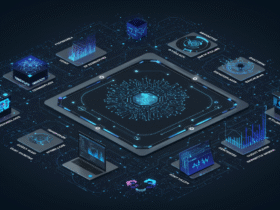

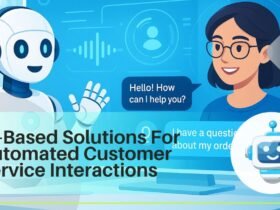








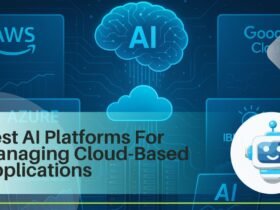

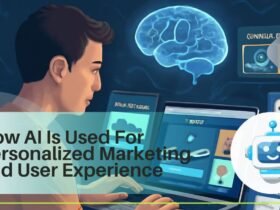
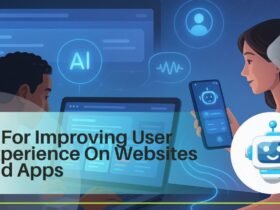
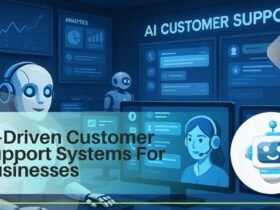

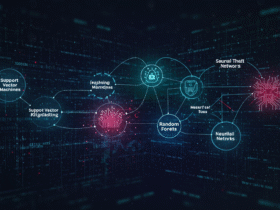




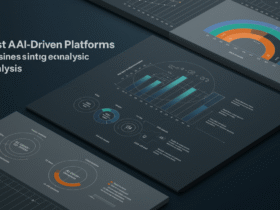


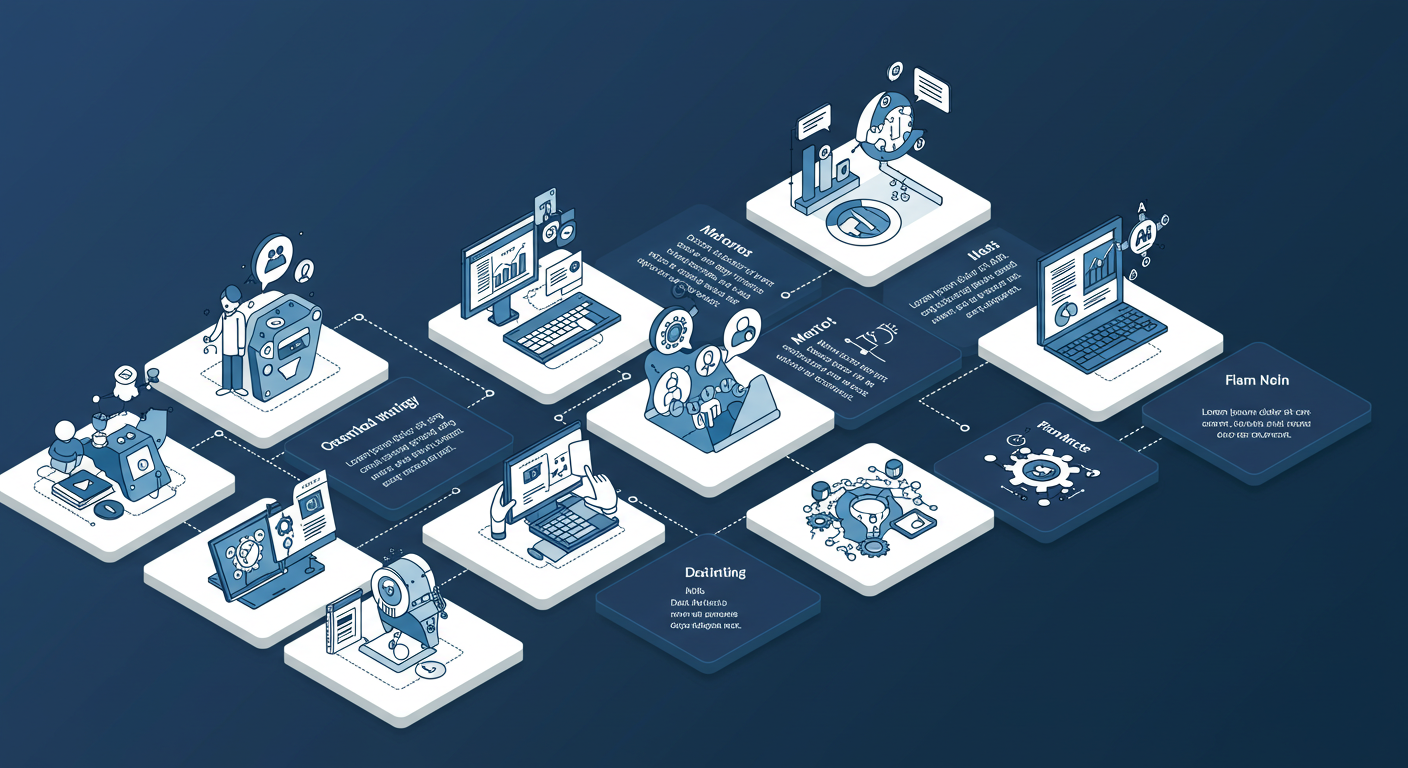


Leave a Reply